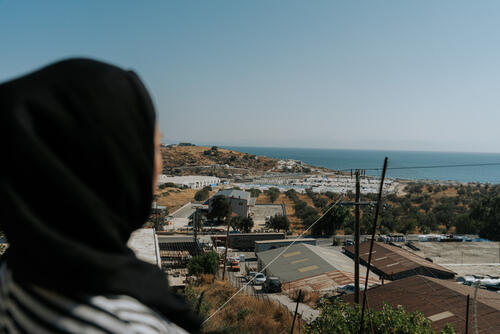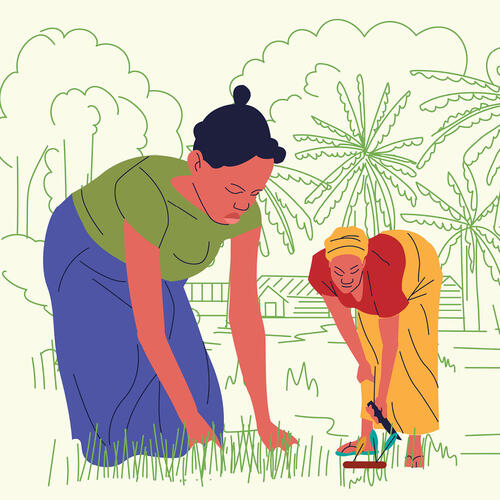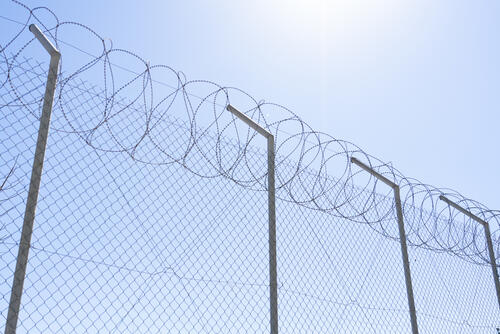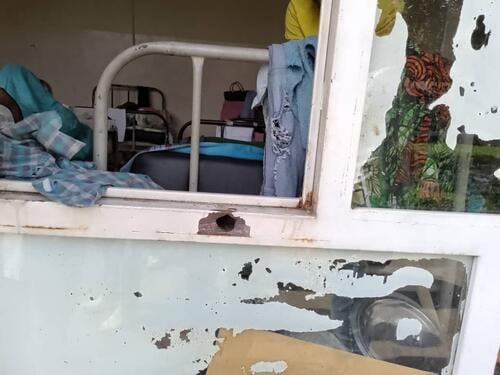On 8 and 9 September 2020, the notorious Moria migrant camp, on Lesbos, Greece, burned to the ground. The fire later became a moment symbolic of the European Union’s total failure of their approach to the refugee and migrant ‘hotspots’ on the Greek islands.
One year after EU promises of a “fresh new start” on migration, European and Greek leaders continue to deny basic dignity to asylum seekers and migrants searching for safety in Europe. Meanwhile, their hideous plan to construct prison-like camps in the five North Aegean islands is moving forward.
“In Greece, the future looks more dystopian than ever, as those who make it to cross the sea continue to live in miserable camps on the Greek islands”, said Konstantinos Psykakos, Head of Mission of MSF in Greece. “It is a tragic irony that as the world observes the latest developments in Afghanistan, the EU and Greece are inaugurating a new prison like-centre to trap refugees on Samos island.”
“This is the best demonstration of the cruelty of the EU's migration policies”, said Psykakos.
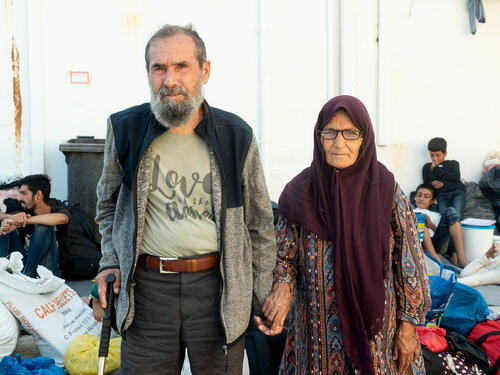
People continue to report to teams from Médecins Sans Frontières (MSF) how the limbo situation on the islands, the arbitrary and fast track asylum processes, the fear of deportation, and the precarious living conditions contribute to the deterioration of their health and mental health. Children seeking mental health support at the MSF clinic on Lesbos, often exhibit regressive behaviours such as aggression, withdrawal and secondary enuresis (bedwetting) or present delays in cognitive, emotional and social development.
People who have experienced significant trauma have difficulties in processing their very distressing memories and remain afraid for much of the time. Post-traumatic stress disorder and depressive disorder symptoms are among the most predominant ones seen by our doctors, being present in close to or more than half our child and adult patients.
“There is no difference between the old Moria and Kara Tepe camp,” said Ali*, a survivor of torture in Syria who has been on Lesbos for one year and six months. “The procedures are the same. It is the same system.”
“As a sick person, I feel I am going from bad to worse day by day,” Ali continued. “The European parliament, the European Union, they know what’s going on in this shameful camp, but nobody can feel us.”
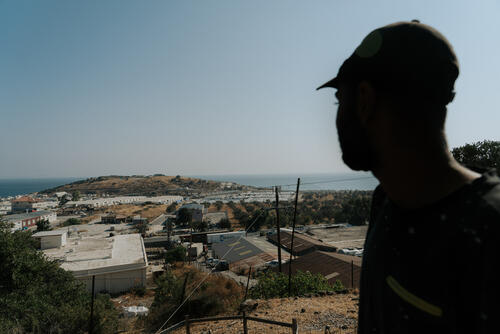
“We are in a bad mental health state,” said Mariam,* a mother from Afghanistan who has already spent two years on Lesbos. “Right now, I don’t know if we can get recognised as asylum seekers or if we are going to get another rejection.”
“Until now, my two-year-old daughter has never been to a park. We have problems with getting permission to get outside of the camp,” Mariam continues. “My little girl tends to have aggressive behaviours because of what she has witnessed here. She doesn’t like to play, to laugh, to speak or play with dolls.”
Recently, MSF teams on Lesbos moved to a location near the Kara Tepe camp, where we provide vaccinations to children against common childhood diseases, and sexual and reproductive healthcare services to refugee women. We continue to offer mental health care to children and adults in our clinic in Mytilene.
It is a tragic irony that as the world observes the latest developments in Afghanistan, the EU and Greece are inaugurating a new prison like-centre to trap refugees on Samos island.Konstantinos Psykakos, MSF Head of Mission
As humanitarian crises unfold in several parts of the world, we continue to call on the European Commission, Greece, and European States to implement policies that are focused on protecting and assisting refugees and asylum seekers, instead of ways to deter, stop and deport those who seek safety in Europe.
This starts with refraining from building centres that will trap people in prison-like settings on the Greek islands, and rather focus on humane and dignified reception policies. All facilities on the Greek islands must have, as their sole purpose, the provision of urgent assistance and facilitation of relocating newly arrived asylum seekers to safe reception structures across Europe.
*Names changed to protect privacy.



